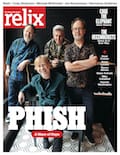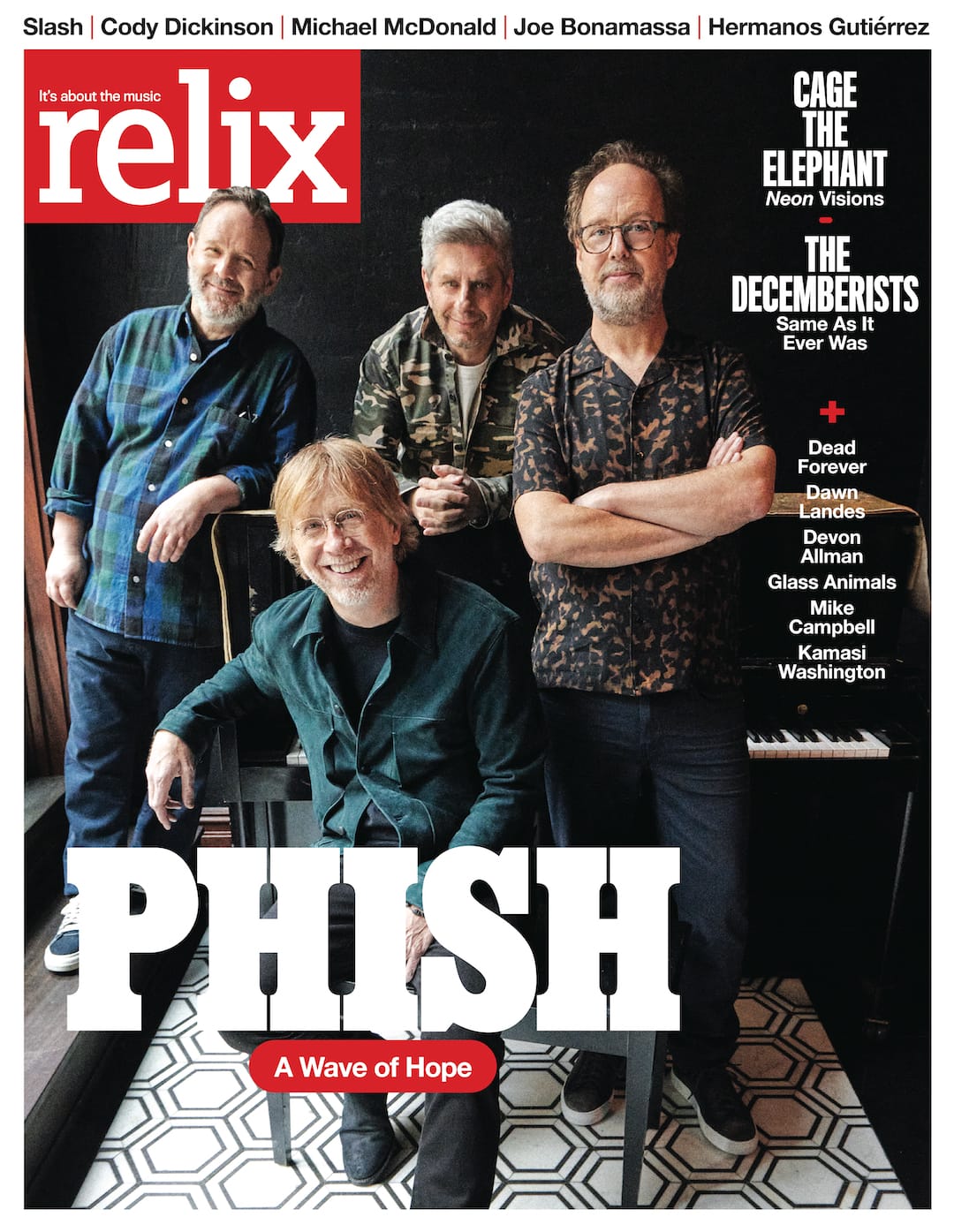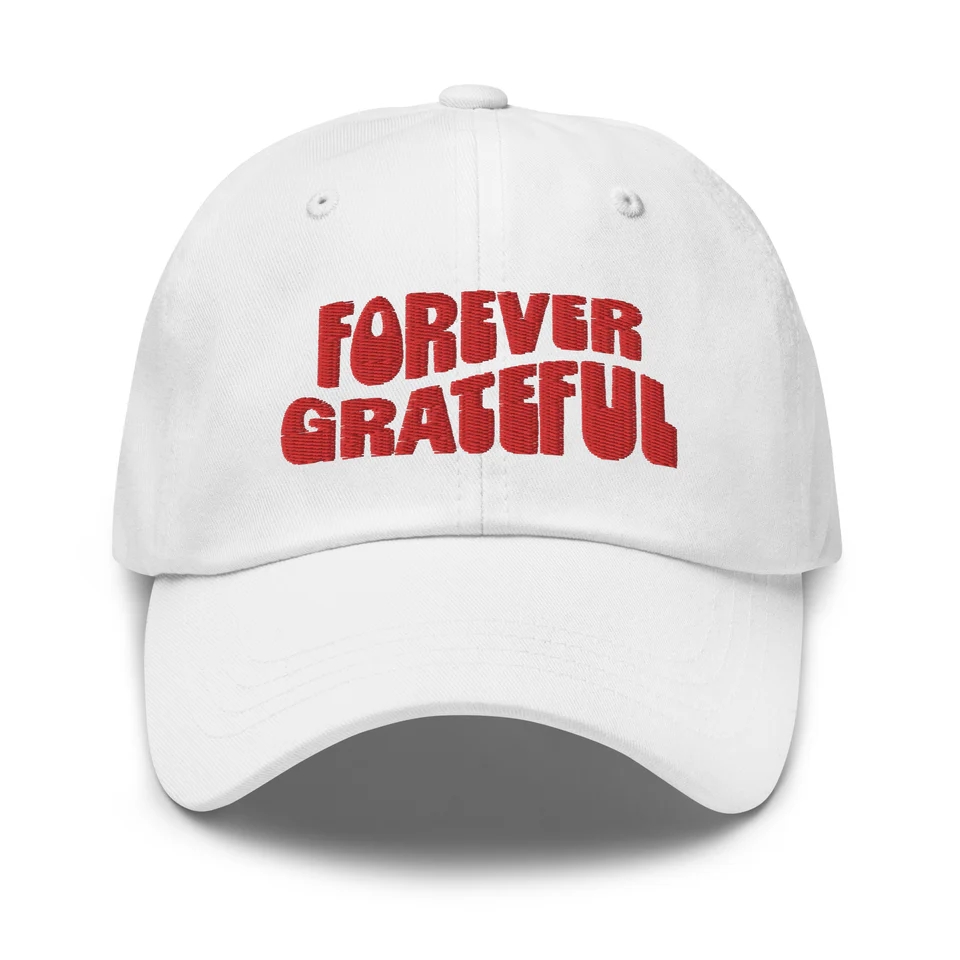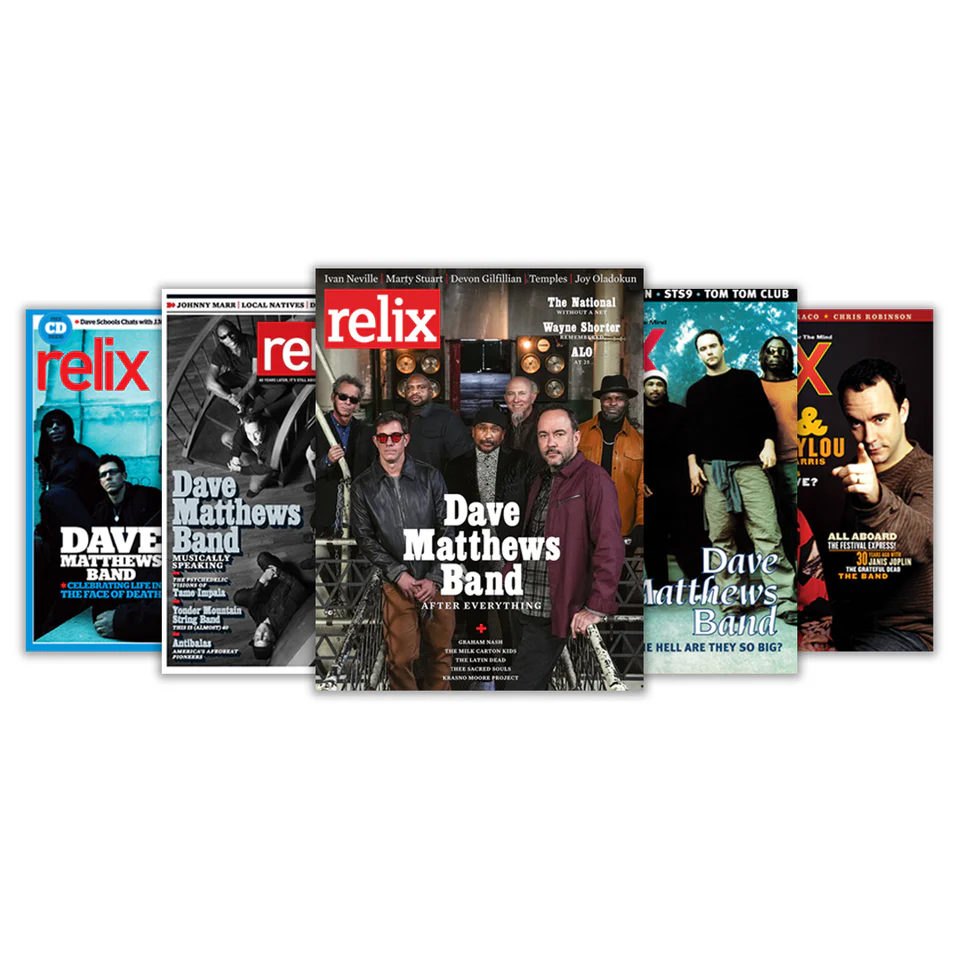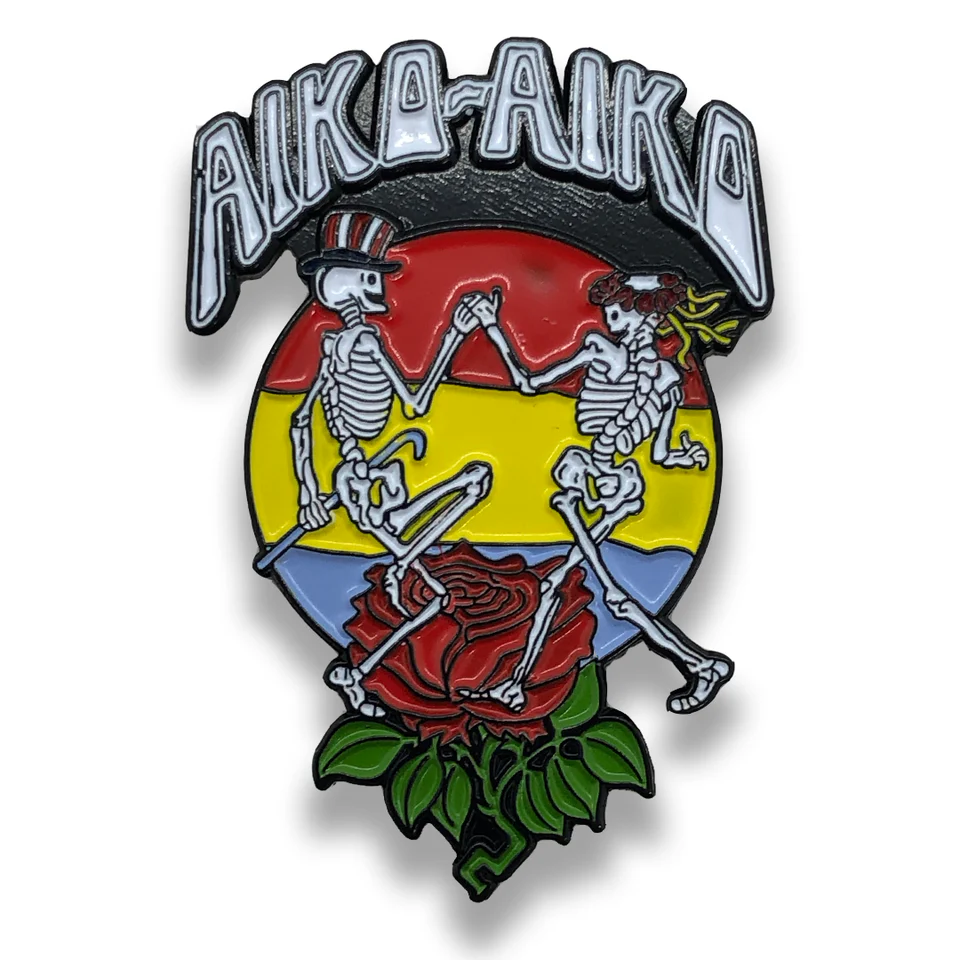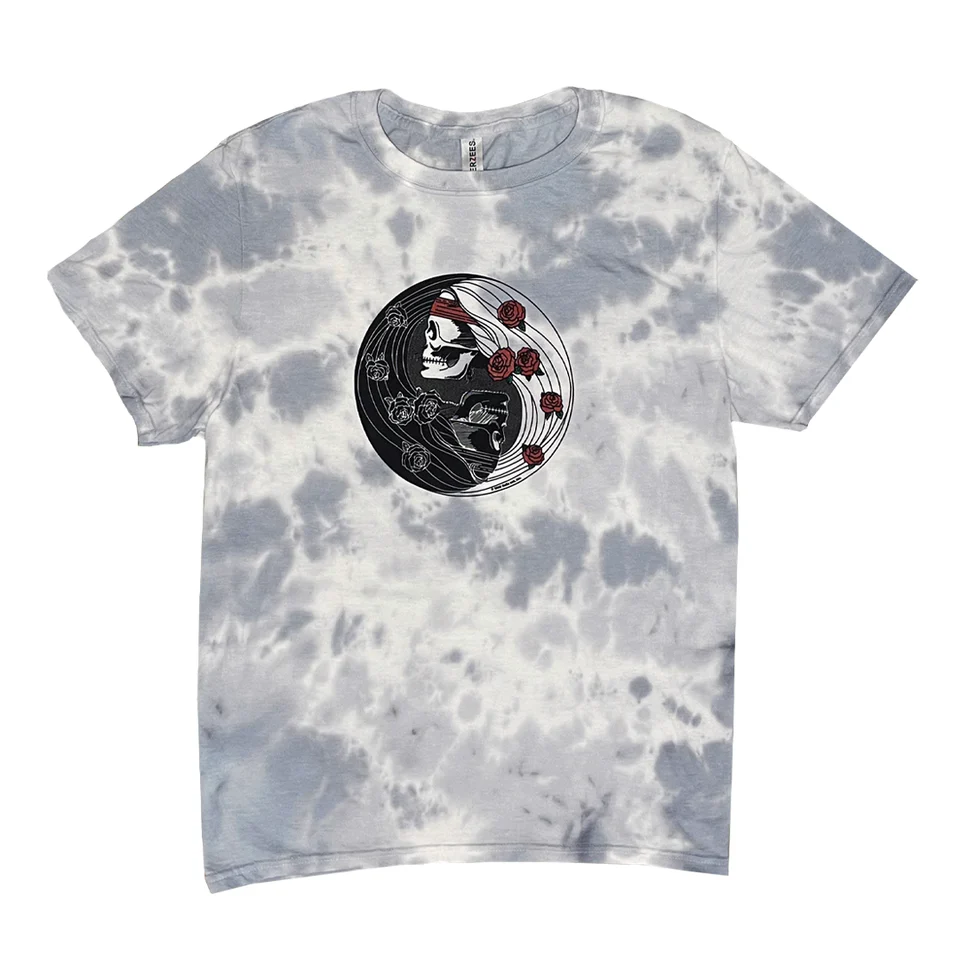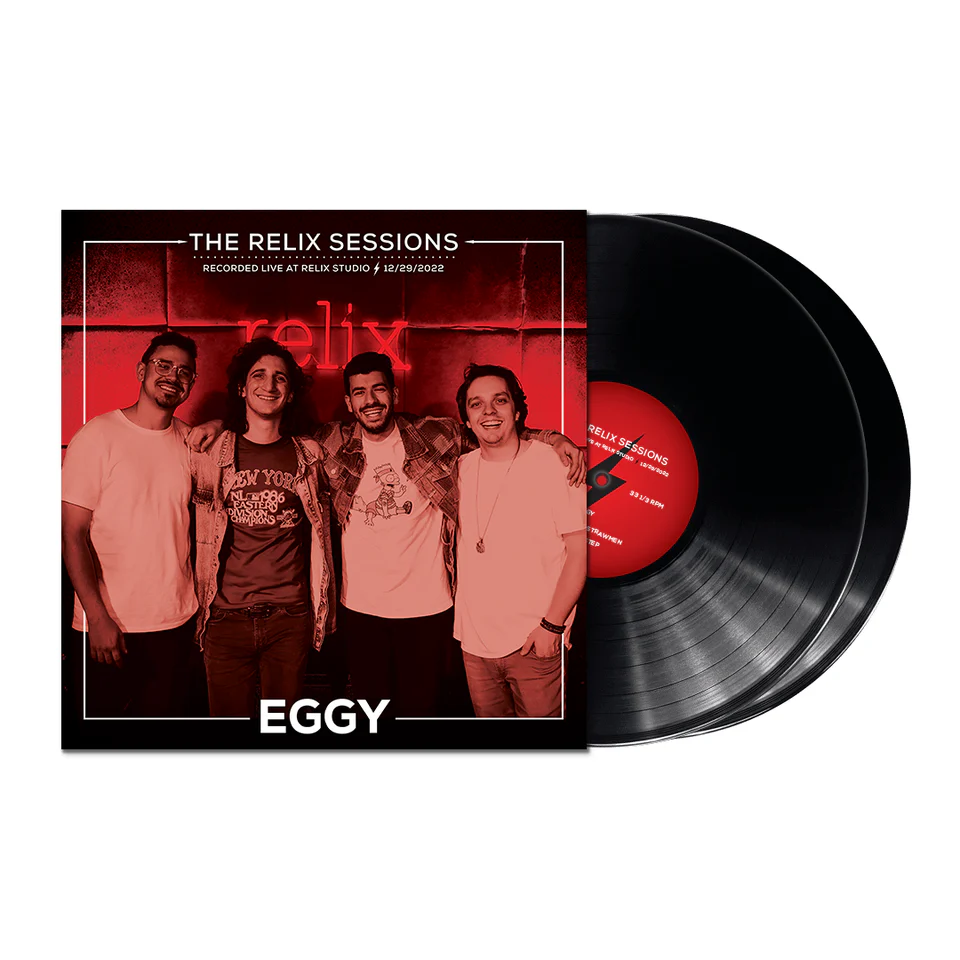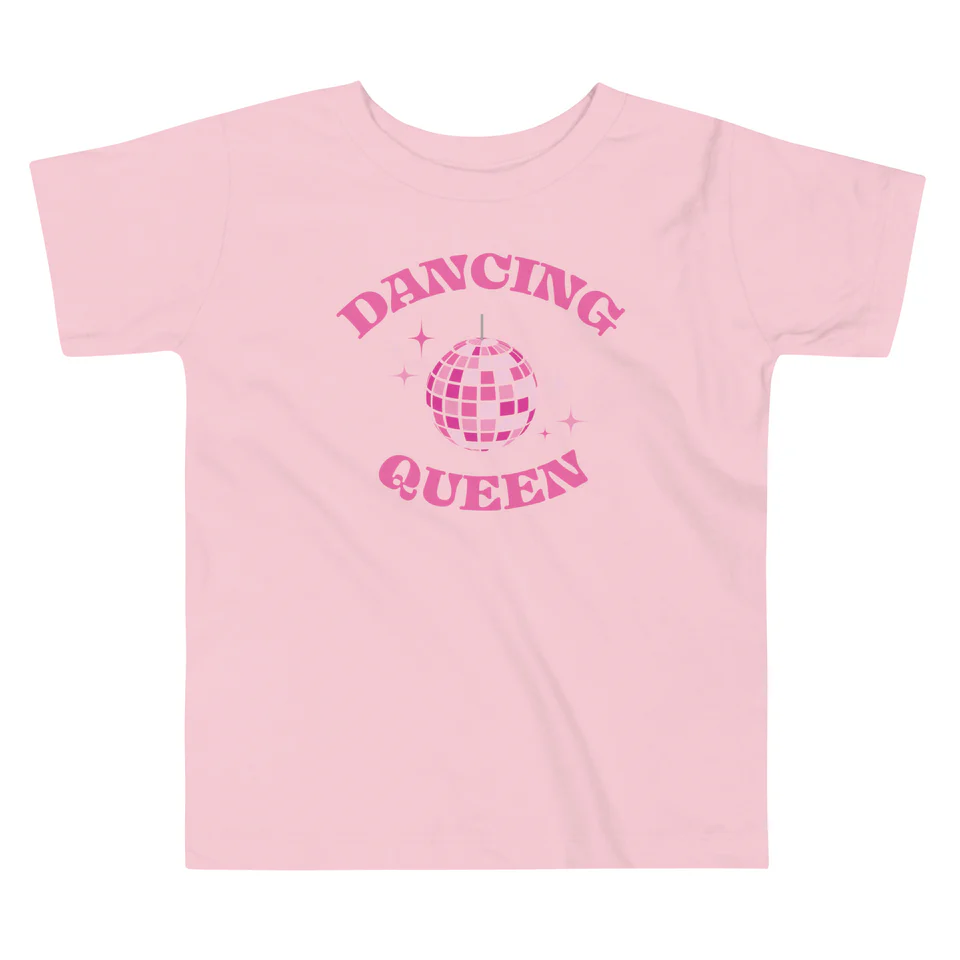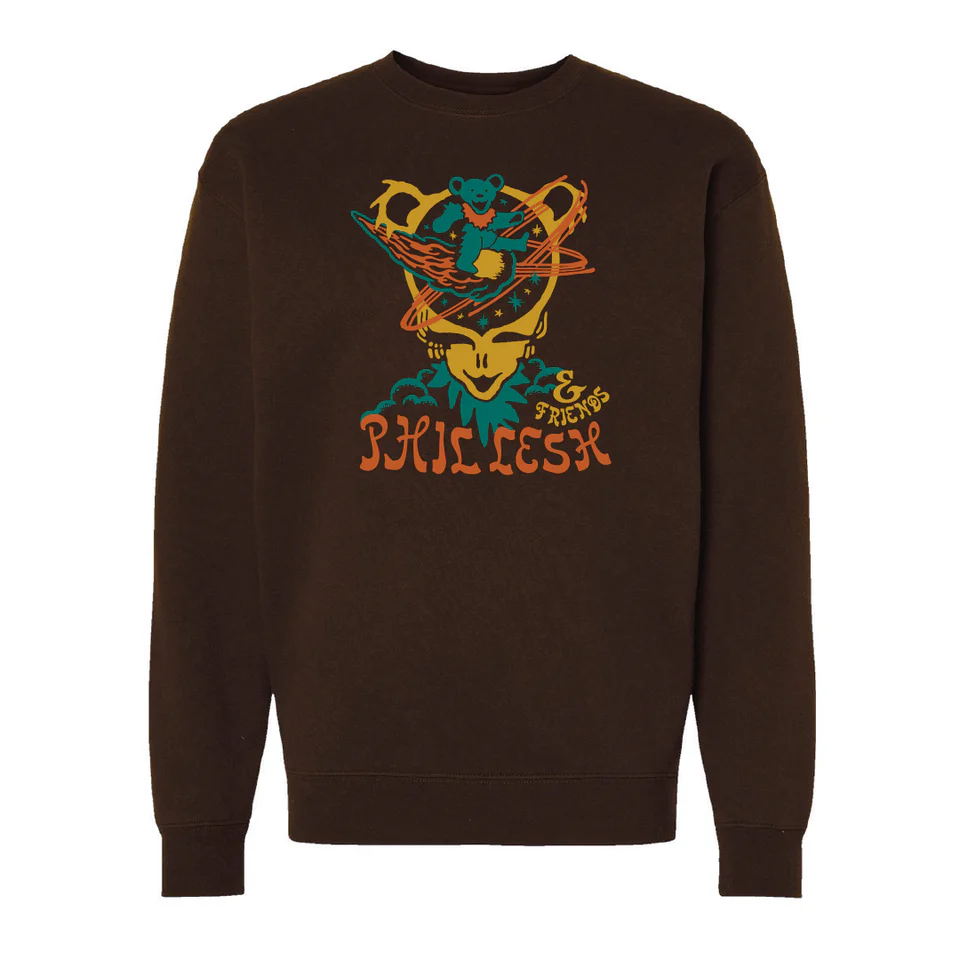Brittany Howard: Screaming into the Void
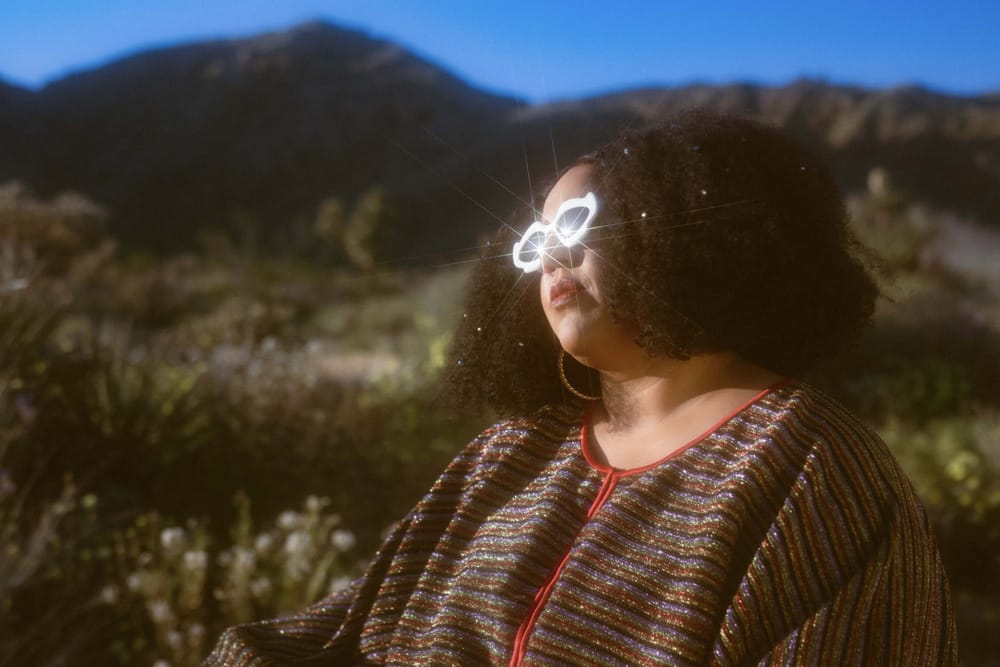
Brittany Howard never thought that she’d be the type of person who meditated twice a day. But, then again, she’s learned a lot about herself during the past four years.
“Someone I’ve been close to for years, who I had seen less because of the pandemic, started coming back into my life and I noticed their vibe was different,” the singer/guitarist says. “They smiled more, and they were funnier. They were more buoyant. And after hanging out with him a few times, I was like, ‘What the hell’s going on? What are you on?’ And he said, ‘Honestly, I’ve been doing Transcendental Meditation. It’s really helped me with stress.’”
At first, Howard was a bit suspicious. But, eight or nine months later, she decided to try TM for herself. She signed up for a course and, she admits, “I just found I had more space in my brain.”
She explains, “I’m someone who really wrestles with so much information going all day long. It created the space in the fabric of my life where I could relax and not everything needed to be immediate. You could just be in the moment. It taught me to be a more available person.”
Embracing Transcendental Meditation is just one of the many moments of self-discovery that Howard experienced between the 2019 release of her solo debut, Jaime and her new sophomore set, What Now—a kaleidoscopic, genre-bending blend of soul, funk, rock, hip-hop, R&B, psych and even spoken-word that seems to both mirror and, yes, meditate on the chaos of the past four years. It’s also the latest in a series of unexpected turns since the 35-year-old former postal worker first burst onto the live-music scene a little over 10 years ago.
As she is sorting through the familiar swirl of fear, loss, reflection and happiness that has characterized the pandemic period for so many, Howard is sitting in a subterranean restaurant in the Williamsburg neighborhood of Brooklyn, N.Y., sipping a cocktail. It’s early December and the holiday spirit in the air is already palpable; Howard is wearing a festive dress and some sparkles that could double for concert attire if she were to take the stage later that night. A mix of mangers, publicists and other members of her creative team are milling about the space, but the energy feels more like a happy-hour reunion than a business meeting. Howard— who first gained fame as the singer/ guitarist in soul-rock festival favorites the Alabama Shakes—has long reached the level of cultural cache where it feels natural for her to have an entourage, but there is still a family vibe. And though she has deservedly joined an elite club of entertainers who are a regular presence at award shows, big-name benefits and the occasional White House summit, she still comes off as humble, honest and even a little shy as she describes her long-in-progress new record.
Howard began working on the intentionally punctuation-free What Now early on during the pandemic. Stuck at home and not entirely sure what her next steps should be, she decided to start tinkering in her home studio.
“I got bored,” she says in a matter-of-fact manner. “It was winter and everyone’s on lockdown. It was like, ‘I am a musician. I should probably make music.’ So I just told myself: ‘Go in there every day and make something. It doesn’t matter what it is— what genre it is, what it’s talking about.’ I was using it like a journal. I would just go in there to talk about however I was feeling.”
Over time, Howard started amassing song sketches and, eventually, felt ready to call her managers. While chatting with them, she announced that she wanted to work with Shawn Everett, the out-of-the-box, Grammy-winning producer who sat at the helm for Alabama Shakes’ artful 2015 crossover, Sound & Color.
“It was before I even thought about it,” she says. “I just started making plans in real-time. It was almost like something took control of me and started making plans in the calendar.”
When Howard and Everett first connected in person in 2022, they originally intended to work on a different project. But once Howard casually shared her more experimental home demos, they gradually started planting the seeds for What Now.
“When I work with Shawn, he just lets me take the lead and, whenever I get stuck, we figure things out together,” she says. “It’s why I love working with him. He’s so down to explore and he has that childlike sense of wonder. It just comes out of both of us. We don’t give up, and he has a great work ethic. We will be in there until the sun comes up. And we’re happy doing that.”
Workshopping ideas while fluttering around her house, Howard says that she’d start cooking up song sketches on the fly and then race to a computer as quickly as possible to capture what she was hearing in her head.
“I’m getting all of it—the baseline, the drum and guitar parts, a hook—and I immediately start throwing everything down as fast as I can,” she says. “My demos usually sound like that—haphazard, chopped up. They’re just ideas. I’ll throw effects on. They’re imaginings, blueprints. So that’s how the process starts—very quick. I just get it down before it goes away.”
She admits that when it comes to writing, “I always have to be kinetic. I always have to be doing something else. That’s when the songs come. I have a full studio in my backyard, but that’s just for fun. That’s not really how I put things down. I just use the simplest possible setup, just a little shitty microphone plug and a laptop. I use a little MIDI keyboard because, if I have more keys than that, I can’t focus. So the tinier the better, really.”
The final product was tracked at Nashville’s Sound Emporium, the musician’s homebase for most of her albums. Howard says that she has been fascinated with engineering records ever since she was 12 or 13 years old and makes a point to highlight her role not only as a singer, guitarist and songwriter but also as a producer on What Now. She’s not trying to brag—she just hopes future generations of female audiophiles will take some inspiration from her story too, helping to open up a traditionally male-dominated field.
“It’s something I do as a hobby,” she admits. “It’s fun. I like recording other people. I’m not an expert at it but I enjoy making sounds and experimenting. I love being a part of that process—100%. I love mixing and I just love being in the studio.”
Many of the songs Howard originally brought into Sound Emporium were only 25-50% done when she arrived; she quickly learned that coming in with half-baked ideas often leads to even more creativity.
“I was always the type of person that showed up with everything ready,” she says. “I would have all the parts laid out. I just needed real musicians to actually play them. This time was different. There was more flexibility; there was more chance. It was super fun. I leaned into that.”
And the results are a constellation of sounds—moving from the meditation bowls that open “Earth Sign” to the free-jazz freakout of “To Be Still,” the percussively tribal “Red Flags,” the quasi-club banger “Prov It” and the funky “What Now.”
“It’s definitely calculated,” she says of the arc. “It has a lot to do with welcoming people in, arresting them, taking them on this journey, giving their ears a break, taking a couple songs to slow down and then taking it out real big. We’re orchestrating a ride for people to get on.”
To achieve the complex, rhythmic textures, she rounded up an all-star mix of players that includes keyboardists Paul Horton and Lloyd Buchanan, guitarist Brad Allen Williams and drummer Nate Smith, who she originally connected with on Instagram.
“I love drummers—it’s my first instrument and I follow a lot of drummers on Instagram,” Howard says of Smith, whose credits range from work with Vulfpeck to Paul Simon. “And Brad was someone Nate wanted to bring along. He’s taught me so much about music in general.”
She also had a deep connection with Horton that predates even the Shakes.
“The funny thing is, I actually grew up with Paul on the same street, but he’s 10 years older than me, so he would be literally practicing piano and looking out the window as I’m getting chased by a dog,” Howard says with a laugh. “So that was so random. I met him when we did [2012’s] Boys & Girls, our very first record with the Shakes. The engineer was like, ‘Oh, you need a key player? I happen to know a guy.’”
In addition, she recruited Alabama Shakes bassist and co-founder Zac Cockrell, who had previously contributed to her inaugural solo record. “That’s my buddy, that’s my A 1 since day 1,” she says. “Me and him started everything together when we literally were just kids. That’s somebody whose opinion I trust thoroughly. We have fun making music together and he’s super talented, man. You meet everybody at different levels and layers of life, and I’m really amazed me and Zac still have this thing going. We still make each other laugh hysterically—we’re buds.
We still love music. We love discovering it.”
Perhaps most surprisingly, the LP uses a clip of Maya Angelou’s poem “A Brave and Startling Truth” as the invocation for the mighty “Another Day.”
“I just really love voices, always have,” Howard says. “On my last album, I had this preacher’s voice and, when I was listening to it, it was so nostalgic. It brought on a song. I don’t go to church anymore and it’s totally fine. I grew up in the church and there’s all this shame and things that I experienced. So it was very freeing to let that go and to also honor what it is. Maya’s words are very visual, and I came across her speaking at the United Nations—I thought it was so moving for her to say those words to a bunch of nations that bomb each other and cause all this strife. The way I interpret what she’s saying is: ‘We’re a very destructive force, but we’re also so creative. If we only put more energy into this creation aspect, we’d see how special we are.’ But it’s the way she said it. It wasn’t preachy; it was just very beautiful and pointed.”
She takes a breath, sips her drink and continues to try and make sense of “Another Day,” which sorts through the chaos, the joy and the fear that Howard, like many, were feeling during the roller coaster that was the COVID-era.
“I just imagined a world where nobody gives a shit what you look like or what you’re doing, who you’re dating or who you’re marrying. It’s this juxtaposition of this feeling of being in love and falling in love while the world is literally on fire. That’s where I was at the time. You feel guilty for enjoying your life because someone else doesn’t get to. I think about the 24-hour news cycle—these terrible things going on. But because we’re human beings, you have to experience it all. That’s the nature of life.”
***
Howard has experienced the full scope of “the nature of life” firsthand from a young age. Raised on a junkyard in the country, she grew up in Athens, Ala., the daughter of a white woman and Black man. The future musician combatted racism in her community and weathered a number of hardships before reaching her teenage years: Her family’s home was struck by lighting and burned down, her family’s car was vandalized, her older sister and first musical mentor Jaime died from retinoblastoma in 1998, and the same disease left Howard partially blind. Her parents divorced soon after Jaime’s passing and the future star used music as a source of comfort.
She befriended the rest of the players who would eventually comprise the Alabama Shakes—Cockrell, guitarist Heath Fogg and drummer Steve Johnson—when she was in her teens.
“We met in our high school sociology class,” Cockrell says of his initial connection with Howard. “She’s been a talented writer and performer for as long as I’ve known her.”
The Shakes, as they were originally known, started gigging out in 2009 and working on their initial demos, but the group’s breakthrough moment didn’t happen until the blog Aquarium Drunkard posted their song “You Ain’t Alone” in 2011—kicking off an industry bidding war overnight. The mp3 also piqued the interest of Drive-By Truckers’ Patterson Hood. The Alabama native checked out the group live and introduced them to his managers, Red Light’s Kevin Morris and Christine Stauder, who flew down to meet the nascent group. The Alabama Shakes decided to bring them on—impressed with their down-to-earth approach and community-building experience through years working the jamband circuit—and signed to ATO Records. Howard was working for the U.S. Postal Service at the time.
Propelled by the single “Hold On,” their full-length introduction, Boys & Girls felt like a fully realized statement by a veteran soul-rock band—an authentic blend of garage swagger and bluesy grooves that made them instant favorites. Early support spots for North Mississippi Allstars, Drive-By Truckers and even Jack White showed off the group’s live prowess, and a 2012 Thursday-night appearance at Bonnaroo was their festival-scene coronation.
“When it comes to live shows, the thing I think about the most is how I would want to feel if I went to a show,” Howard says. “But also more important, I want to really express myself on a song. I wrote it for a reason. How best can I do this in front of people’s eyes and ears, and connect with them doing that? As a band, we put a lot of work into it. We want it to sound good and we want someone to feel something. Sometimes people want to feel mindless and that’s great. And sometimes people want to connect and that’s great, too.”
After the success of the Shakes’ debut, Howard reached out to Blake Mills to work on their sophomore LP, after hearing his 2010 record, Break Mirrors. “We’re two peas in a pod; that’s the way I feel about it,” she says. “So easy, great attitude—it was just creatively very freeing. I wanted to keep working with him because it’s not every day that you meet someone like that.”
2015’s Sound & Color was a critical and commercial success, rebooting Alabama Shakes’ then trademark sound with an unexpected, psychedelic mix of punk, funk and shoegaze fuzz. The LP topped the Billboard charts and helped the group pickup four Grammys; Howard even sat in with Paul McCartney at Lollapalooza the summer after the LP’s release.
But instead of following that genre-defying set with another Shakes record, Howard surprised her fans once again by launching a solo career, releasing the first album under her own name, Jaime in 2019.
Digging deeper than ever into her past on the eve of her 30th birthday, Howard crafted a candid, emotional look at her life— touching on her struggles with poverty, racial prejudice and her sister’s tragic passing. Jaime expanded Howard’s sonic palette once again as well, zeroing in on a heavily R&B-based mix of jazz, funk, soul and hip-hop. She also decided to produce the record herself.
“That’s why I wanted to do a solo project—no one’s responsible for anything that I put out or say except me,” she says. “If it sinks, it sinks. If it sells, it sells. And I’m fully responsible for all of that and I get to be free creatively. What a divine gift to create anything, and it’s just fun. I love it. I try not to think too hard about it. It’s just, ‘I wanna hear this; I wanna see this.’”
She goes on, “It’s 100% my opinion. License to kill, license to create. And I get to tell my story the way I want to tell it, feel the way I want it to feel—express myself. This whole journey—creating music in general—I’m still trying to get to the meat of what I’m trying to say over and over, in way that other people can connect with it.”
The song cycle was also well-received, eventually scoring Howard a few additional Grammy nominations, and she hit the ground running on an expansive solo tour. Drawing a line in the sand, her setlists did not include any Shakes originals, though Cockrell remained part of her band.
“We always collaborate and bounce ideas off of each other and, when the time came, there was no formal conversation,” Cockrel says of the shift from the Shakes to Howard’s solo band. “She just asked if I’d play on the album and then in the live band.”
When the pandemic hit, Howard had recently returned to Tennessee after living in New Mexico and was renting a place, unsure if she was going to remain in the area. Staying COVID cautious, she kept her pod small at first—her best friends, managers and partner at the time.
“It was just temporary until I figured out where else I wanted to go,” she says. “But then the pandemic hit, and I was like, ‘OK, I’m here.’ And I was glad I was there. Nashville has lots of nature. You can be outside, and there’s not a ton of people around. And everybody’s shut in—it was easier to be away from people. But you can’t help but get internal when trapped in a house. You’re trapped with a select few people. You can’t help but examine your relationships with them and with yourself. You ask yourself, ‘Why is it like this? Will it always be like this? What could change? How would I change it? What have I been doing? How did I get here? What do I want? What am I moving toward?’ You are getting existential with it. That’s where the [new] material comes from. It’s just me asking a series of questions over and over again.”
Before 2020, Howard hadn’t taken a break since her band originally exploded onto the scene in 2012. In retrospect, she admits to feelings of imposter syndrome— that if she stopped working, the hard-earned success she had achieved during her rise might all go away. But the pandemic forced her to try to separate herself from her art.
“I had always been working on something, some project,” she says. “I was distracting myself by saying, ‘I’ll just do more work. My work is good. Creating something is very positive.’ But then at the same time, I was leaving myself out as an individual because I could never separate the two—‘I am my work, my work is me.’ And then when the pandemic hit, I got a reawakening, which was like, ‘Who are you without Brittany the singer, producer or worker?’ I had to figure it out. I’m still figuring it out. I’m still untangling it. But there’s a lot more to me. People like me because I’m here, not because of how much work I put into all these things. I paid my dues to my family and to myself.”
During the strange-and-impactful past few years, Howard says that she slowly started using songwriting as part of her self-discovery process. She ended a relationship and started another, trying to stay grounded and supportive of her Black and Queer communities on both the local and national levels along the way. (Howard publicly came out about a decade ago and married Jesse Lafser, who she played with in the side-project Bermuda Triangle, though the couple has since split.)
“On some personal fronts, I’m happy to ask questions and I’m happy I gave those parts of me a voice,” she says. “Otherwise, it would have been rattling around in my head. So I got to express them on the new album and make those things quieter. And I don’t have to have this anxious, overflowing experience in my mind. I can just point my finger at it and say, ‘That’s how I handled that. This is how I’ll handle it next time.’ When it comes to the world on a global scale and living at a time when all of us are feeling the pressure of what that’s like, it’s terrifying. But we’ve got to live, and it’s interesting to live in times that are so unparalleled.
“It’s uncharted territory—like we’re on a new timeline and I’m asking myself: ‘Who am I in the story? And have I got that figured out yet?’” she says, before answering her own question. “No, but I know what I stand for and I’m just going to do that. I don’t have to be right 100% of the time. We live in an age when everybody expects you to know everything because everything’s cataloged now. But it’s our birthright to get to grow and change, if you want to. These examinations on the record are me doing that. It’s been three or four years since I’ve made an album. These are just questions I’ve asked myself and how I’ve grown since then.”
***
What Now was released on Feb. 3 via Island Records. It marks her first record for the Universal Music Group-backed label, after working with ATO records since the Shakes’ early days. The change is part of Howard’s plan to mix things up this time around and keep her music from feeling static. That same mission statement informed the name of her new release which, despite being only two words long, actually contains a couple of different messages and a lot to unpack.
Of course, the most direct meaning seems to nod to the often-chaotic news cycle, where every day the needle seems to be moving closer to a global apocalypse.
“It’s been insane,” she says of the few-year stretch since her last album. “It feels like something fucking crazy is always happening. I’m not sure if these media outlets got more employees or if it’s always been like this, but there’s also this feeling of exhaustion and exasperation, ‘What now?’ The desensitization of not being shocked anymore by a mass shooting is fucked up.”
But, there is also a deeper, more personal meaning embedded in the name.
“What Now is where I’m at now because I’d like to embody the type of artist that makes whatever they want in the future,” she says. “I want people to say, ‘I wonder what this is now?’ I never want to be predictable.”
She sees What Now’s juxtaposition of sounds as a reflection of the chaos around her, with her signature voice remaining a grounding force.
“You always go back to a constant, you’re welcomed in,” she says. “The new songs aren’t necessarily cohesive. It literally feels like, ‘What’s gonna happen now?’”
She goes on to explain, “I keep trying to express meaning. I keep trying to figure out how to express myself, to figure myself out. And these songs came out of that. On a macro level as well, everything is affecting everything. It’s always a push and pull. There are all these stresses in the world and you’re watching that. You’re like, ‘My God, I have to do something.’ And then you feel powerlessness looking at everything going by. You can’t touch it or change it—all you can do is just scream into the void. And I feel like making this album was me saying, ‘Jesus, all I have is me and the people around me.’ The only consistent things throughout this album are these questions and these ideals—these things I hope to see, hope to be better at.
With the touring world now reopen, Howard has returned to the road in full force. That has included shows with My Morning Jacket, an appearance with Brandi Carlile at Madison Square Gaden, and her own headlining club and theater dates. Her live band is a force—an expansive mix of musicians from her studio sessions and beyond. And she is excited to be back in the swing of things, even after experiencing a more stationary lifestyle for a few years.
“It’s a good job—long hours, strange life,” she says. “I miss my family and friends and I miss my bed. There’s certain things that you have to give up if you go down this path but, at this age, I’m learning there’s a balance. Throughout the pandemic, I learned how important that is and I want to spend more time appreciating the people around me—the people who really know how important they are to me and who are good in the moment. I don’t need the acknowledgement that made me feel special.”
When asked if she plans to make another record with the Shakes in the near future, she is candid, but noncommittal.
“I’m not sure,” she says. “I’m the type of person that follows whatever feels like the right thing. If I’m getting called to do that, I’ll talk to Zac about that and see if we can make something together. At this moment in time, that’s not what I’m being pulled to. I’m being pulled to do this expression that I’ve been doing. The thing about it is, if I’m not doing something I’m pulled toward, I don’t get anything. I don’t receive anything. The music doesn’t come. You can’t force it. So who knows? Me and Zac could do something completely different, too. That seems fun.”
Howard is proud of her Southern heritage and still lives within driving distance of her old hometown, but the singer isn’t entirely sure how long she plans to stay in Tennessee. “Honestly, the politics are appalling,” she says. “It’s not very good. It’s not very humane. And I’m not being represented. Recently in Nashville, they gerrymandered the city, so now we literally are having taxation without representation. I don’t really want my tax dollars going somewhere like that. So we’ll see.”
One of the major reasons she is staying put for now is to use her voice to help those around her.
“Obviously there’s really brave people who are from Nashville, from these communities, who are trying to represent us by doing everything in their power that they can do,” she says. “And I show up for those people. I appreciate them. So I don’t want to give up. That’s why I’m still there. I’m from the South. This is my home, too. I have to say something. It’s hard to leave and feel like you’re abandoning ship. But at the same time, my tax dollars are going to some pretty crazy things.
She also credits her personal reckoning with helping her cut through the noise in recent years.
“Learning to have a little bit more compassion toward myself was always the harder lesson,” she says. “It’s easier to look at someone and understand them, where they come from, why they might want to be an asshole this day or why they would treat me like this. And I’m always asking myself: ‘Well, why do I have so much compassion for them, but I keep myself on such a strict, short leash? Here come my own behaviors or my own lessons I’m learning.’ I started there, with self-compassion, because I never put much energy into it. It was just like, ‘I know who I am. I’m strong. I can take this. We can be gentler, can’t we? We can be nicer, can’t we?’ Also watching some of my friends have children and how they changed and learned to have compassion for themselves by becoming a parent— watching them become softer and more patient—changed my perspective.”
Currently, Howard’s main focus is prepping her live show, which will get a refresh in time for her album release. She hopes to expand her production this time around, adding in some visual elements she missed out on while promoting Jaime due to the pandemic.
“I love theater,” she says. “I love using all manners of media and all types of artforms to make people feel things. So I’m excited to do that and I’m working heavily on that.”
But, she can’t help but also meditate on what her next record will sound like.
“There are some songs that didn’t go on this record that are ready to be put on a record whenever I get a break from this, maybe next year,” she hints. “I’ll get back in there and I’ll try to finish these things— if that’s what I want to do because I might be in a completely different headspace by then. I don’t know and I never know, so I’m going to find out with you. But I’m sure, eventually, I’ll end up in a place where I’m just screaming over static. Screaming Over Static—now that is a good album title.


